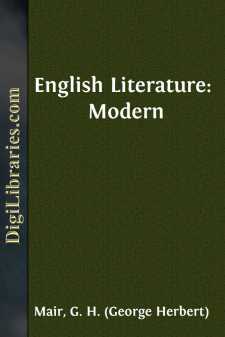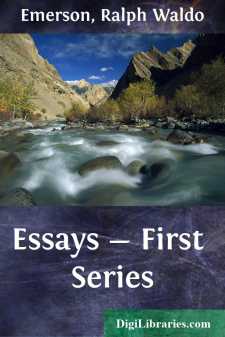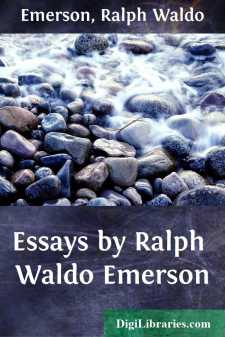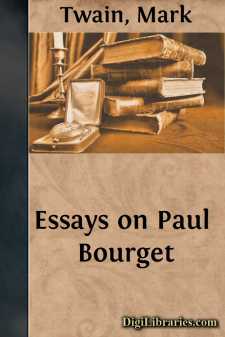Literary Collections
- American 84
- Ancient, Classical & Medieval 14
- Asian 1
- Australian & Oceanian 1
- Canadian 55
- Continental European 121
- English, Irish, Scottish, Welsh 179
- Essays 160
- General 24
- Letters 46
- Middle Eastern 1
Literary Collections Books
Sort by:
by:
Henry Coppee
Chapter I. The Historical Scope of the Subject. . . . . . . . . . Literature and Science. There are two words in the English language which are now used to express the two great divisions of mental production—Science and Literature; and yet, from their etymology, they have so much in common, that it has been necessary to attach to each a technical meaning, in order that we may employ them without...
more...
CHAPTER I THE RENAISSANCE (1) There are times in every man's experience when some sudden widening of the boundaries of his knowledge, some vision of hitherto untried and unrealized possibilities, has come and seemed to bring with it new life and the inspiration of fresh and splendid endeavour. It may be some great book read for the first time not as a book, but as a revelation; it may be the first...
more...
In accordance with the advice of Diogenes of Apollonia in the beginning of his treatise on Natural Philosophy—"It appears to me to be well for every one who commences any sort of philosophical treatise to lay down some undeniable principle to start with"—we offer this: All men are created unequal. It would be a most interesting study to trace the growth in the world of the doctrine of...
more...
CERES’ RUNAWAY One can hardly be dull possessing the pleasant imaginary picture of a Municipality hot in chase of a wild crop—at least while the charming quarry escapes, as it does in Rome. The Municipality does not exist that would be nimble enough to overtake the Roman growth of green in the high places of the city. It is true that there have been the famous captures—those in the Colosseum,...
more...
I. HISTORY. THERE is one mind common to all individual men. Every man is an inlet to the same and to all of the same. He that is once admitted to the right of reason is made a freeman of the whole estate. What Plato has thought, he may think; what a saint has felt, he may feel; what at any time has befallen any man, he can understand. Who hath access to this universal mind is a party to all that is or...
more...
I. THE POET. Those who are esteemed umpires of taste are often persons who have acquired some knowledge of admired pictures or sculptures, and have an inclination for whatever is elegant; but if you inquire whether they are beautiful souls, and whether their own acts are like fair pictures, you learn that they are selfish and sensual. Their cultivation is local, as if you should rub a log of dry wood...
more...
LIFE OF EMERSON Ralph Waldo Emerson was born in Boston, May 25, 1803. He was descended from a long line of New England ministers, men of refinement and education. As a school-boy he was quiet and retiring, reading a great deal, but not paying much attention to his lessons. He entered Harvard at the early age of fourteen, but never attained a high rank there, although he took a prize for an essay on...
more...
by:
Walter Pater
[3] THE making of an anthology of English prose is what must have occurred to many of its students, by way of pleasure to themselves, or of profit to other persons. Such an anthology, the compass and variety of our prose literature being considered, might well follow exclusively some special line of interest in it; exhibiting, for instance, what is so obviously striking, its imaginative power, or its...
more...
INTRODUCTION THE KINDS OF CRITICISM It is probably unnecessary, and might possibly be impertinent, to renew here at any length the old debate between reviewers as reviewers, and reviewers as authors—the debate whether the reissue of work contributed to periodicals is desirable or not. The plea that half the best prose literature of this century would be inaccessible if the practice had been...
more...
by:
Mark Twain
WHAT PAUL BOURGET THINKS OF US He reports the American joke correctly. In Boston they ask, How much does he know? in New York, How much is he worth? in Philadelphia, Who were his parents? And when an alien observer turns his telescope upon us—advertisedly in our own special interest—a natural apprehension moves us to ask, What is the diameter of his reflector? I take a great interest in M....
more...











